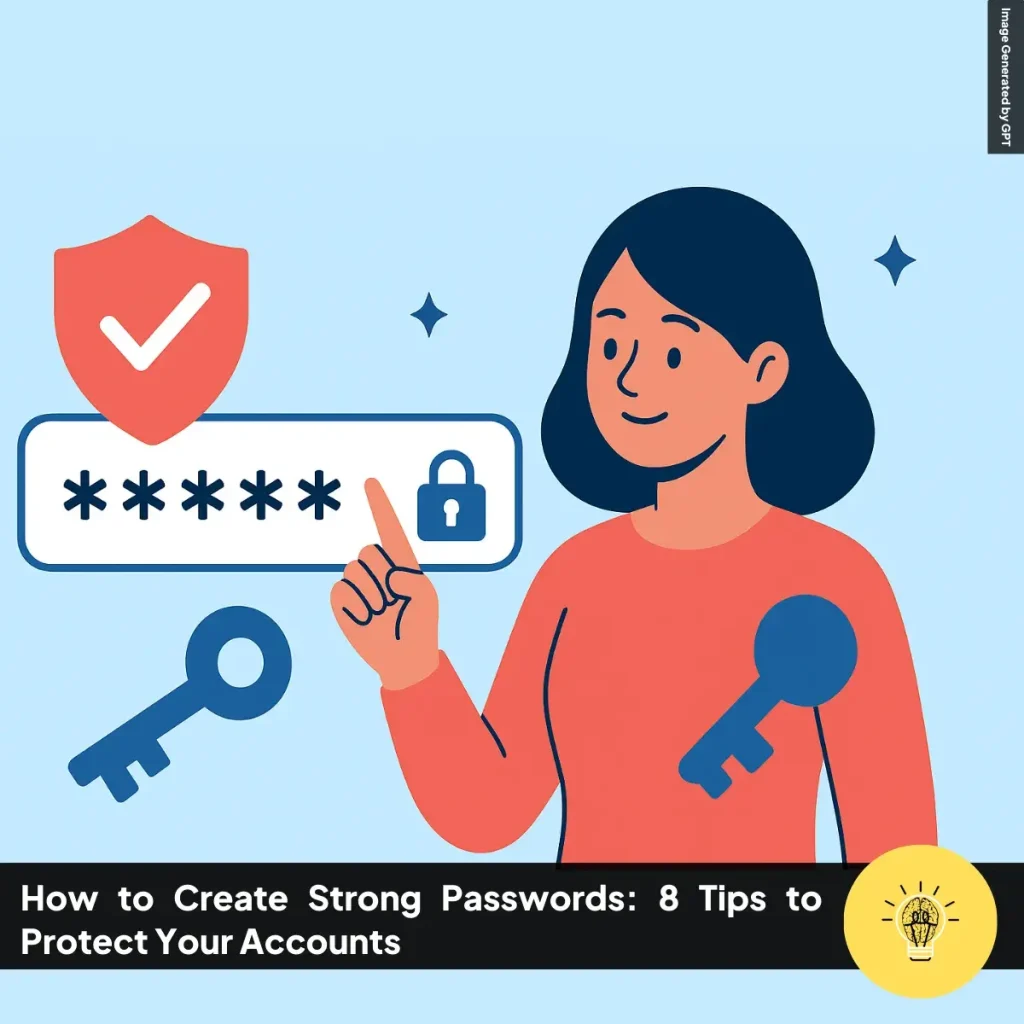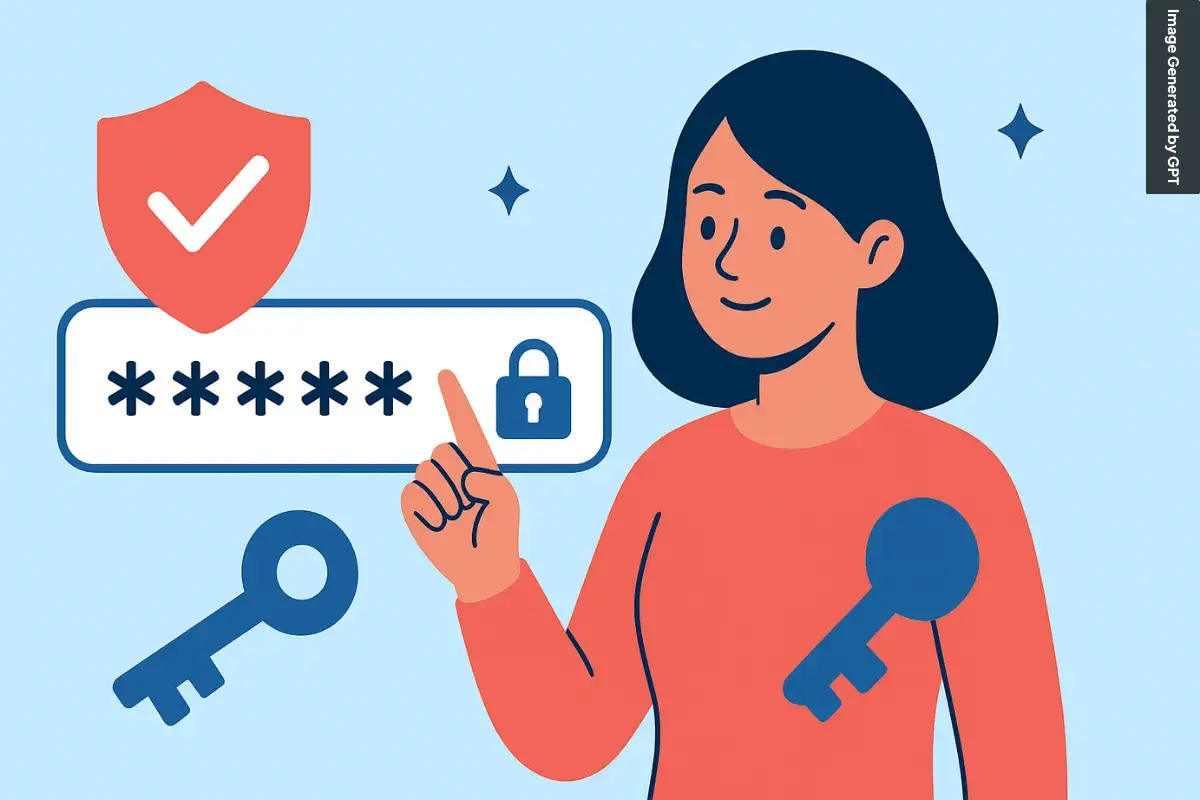Physical Address
304 North Cardinal St.
Dorchester Center, MA 02124
Physical Address
304 North Cardinal St.
Dorchester Center, MA 02124

ruminesia – If you’ve ever wondered how to create strong passwords, you’re not alone. Weak passwords remain one of the most common entry points for hackers. Too many people still rely on simple combinations or personal details that can be easily guessed.
A strong password not only protects your online accounts but also helps prevent identity theft, financial fraud, and data leaks. In this guide, you’ll learn everything you need to know—from what makes a strong password to practical steps on creating and managing them effectively.
A password is a secret string of characters that restricts access to your digital accounts. Whether it’s email, banking, or social media, your password acts as the first line of defense against hackers.
But not all passwords are equal. To truly secure your online accounts, you need to understand how to create strong passwords—ones that are long, unique, and unpredictable.
Before diving into how to create strong passwords, let’s look at common password types:
When learning how to create strong passwords, focus on these essentials:
Hackers use automated tools that can test millions of password combinations in seconds. Research shows:
That’s why understanding how to create strong passwords isn’t optional—it’s essential for protecting your online security.
If you’re not sure where to start, focus on these high-risk accounts:
Here’s how to transform simple phrases into strong passwords:
Notice the length, character mix, and unpredictability.
Read Also:

Creating strong passwords may seem complicated, but it doesn’t have to be. By following simple and practical steps, you can significantly increase your online security. Here are eight proven tips to help you build passwords that hackers can’t easily crack.
One of the most common mistakes people make when setting up a password is using personal details. Names, birthdays, phone numbers, or even the names of pets may seem easy to remember, but they are also easy for hackers to guess. Cybercriminals often check social media accounts for this type of information, making these details highly vulnerable.
When learning how to create strong passwords, it’s best to stay away from anything tied directly to your identity. Instead of using personal details, try selecting thoroughly unrelated words or phrases. The more random and detached from your life, the stronger the password becomes.
To create strong passwords, variety is key. A good password should include uppercase letters, lowercase letters, numbers, and special symbols like !, @, #, or $, to ensure it is secure. This makes it much harder for hackers to crack through brute force or automated guessing attacks.
For example, compare Password123 with P@ssw0rd!23. The second one is far stronger because it increases the total number of possible combinations. While you should avoid predictable substitutions (like constantly replacing “a” with “4”), combining different character types in unusual ways adds a strong layer of unpredictability.
Password length is one of the most significant factors in security. Short passwords of 6–8 characters can be cracked within minutes, while longer passwords dramatically increase protection. Experts recommend at least 12–16 characters for a powerful password.
A practical way to achieve this is by using a passphrase—a series of words or a complete sentence that you modify with numbers and symbols. For example, the phrase I love pizza on Fridays can be transformed into IL0vePizz@OnFr!days2024. Long, memorable, and extremely difficult for a hacker to crack.
Many people reuse the same password across multiple accounts for convenience, but this is one of the riskiest practices. If a hacker gains access to one account, they can use the same password to break into all your other accounts. This tactic, known as credential stuffing, is a favorite among cybercriminals.
When creating strong passwords, remember that uniqueness is essential. Every account—whether it’s email, banking, or social media—should have its own password. If that feels overwhelming, a password manager (covered below) can help you keep track.
Remembering dozens of complex passwords is nearly impossible without help. That’s where password managers come in. Applications like Bitwarden, 1Password, or LastPass are designed to generate, store, and auto-fill secure passwords for you. They encrypt your data so only you can access it.
This tool makes learning how to create strong passwords much easier because you don’t need to memorize every single login. Instead, you only need to remember one strong master password for your password manager, and the app handles the rest.
Even the strongest password is useless if it is stored carelessly. Writing passwords on sticky notes, saving them in plain text documents, or sharing them through insecure channels exposes you to unnecessary risks.
A safer approach is to rely on password managers or encrypted digital storage. If you must write down a password for backup, keep it in a locked physical safe. Part of understanding how to create strong passwords is not just making them, but also protecting them from being discovered.
No matter how strong your password is, it can still be exposed in a data breach. That’s why experts recommend updating important passwords every 3–6 months, especially for sensitive accounts like email, online banking, or work-related platforms.
Changing your password regularly ensures that even if your old credentials were stolen, they can’t be used for long. As you learn how to create strong passwords, make updating them part of your digital routine—similar to updating your software or antivirus.
Even the best passwords can sometimes be compromised through phishing, malware, or the theft of databases. That’s why enabling two-factor authentication (2FA) is so important. With 2FA, logging in requires not only your password but also a second code sent via text message, email, or an authenticator app.
This means that even if a hacker steals your password, they still can’t access your account without the second verification step. To truly master creating strong passwords, always pair them with two-factor authentication (2FA) for maximum protection.
When thinking about how to create strong passwords, don’t fall into these traps:
When it comes to online security, many people still have questions about what makes a password truly secure and how to manage them effectively. Below are some of the most common questions about creating strong passwords, along with detailed answers to help you stay protected.
A strong password is at least 12–16 characters long, mixes uppercase and lowercase letters, numbers, and symbols, and is unique to each account. This combination makes it much harder for hackers to guess.
Use a passphrase—a sentence or phrase modified with numbers and symbols. For example, “I love pizza on Fridays” becomes IL0vePizz@OnFr!days.
No. Reusing passwords is dangerous because if one account is hacked, cybercriminals can use the same password to access others. Always create unique passwords.
Yes. Even with strong passwords, phishing and data breaches still occur. 2FA adds an extra layer of security, making your account significantly more secure.
Update essential accounts, such as email, banking, and work logins, every 3–6 months. Regular password changes reduce the risk of your password being leaked.
Yes. Password managers generate and store secure passwords in encrypted vaults, so you only need to remember one master password.
Learning how to create strong passwords is one of the most straightforward yet most powerful steps you can take to protect your digital life. By using long, unique combinations, avoiding personal details, and enabling two-factor authentication, you significantly reduce the risk of hacking and identity theft.
Make it a habit to update your passwords regularly and use a password manager to stay organized. Strong passwords not only secure your accounts but also give you peace of mind knowing your personal and financial information is safe online.